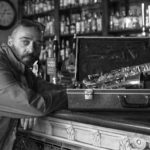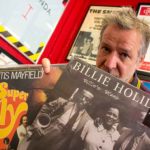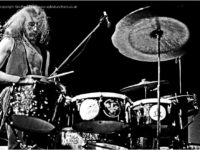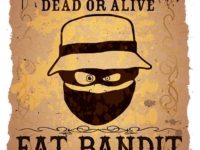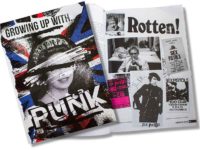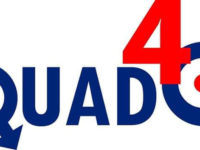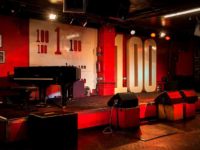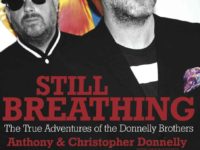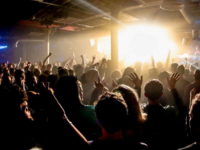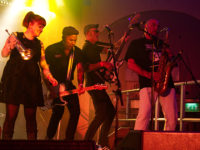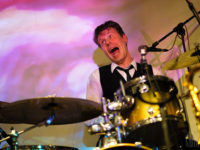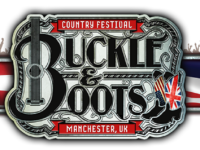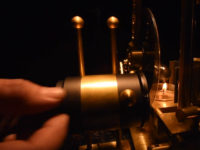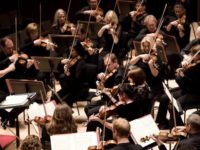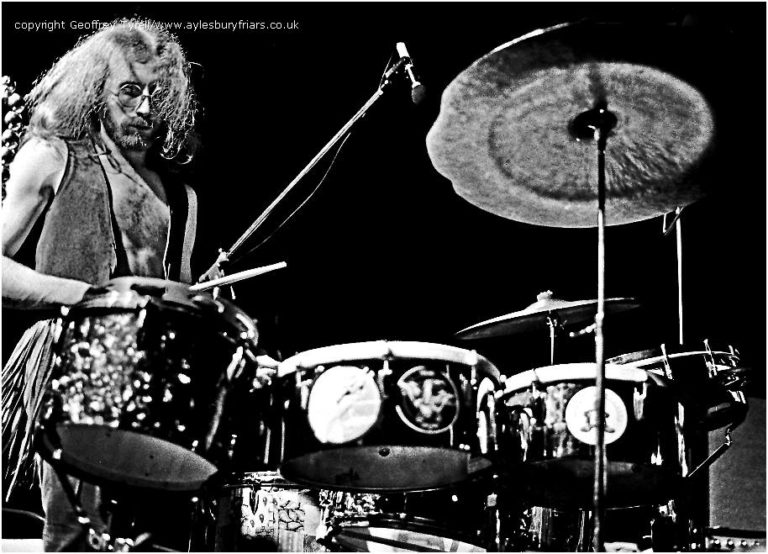A Gryphon, is a legendary creature with the head, talons, and wings of an eagle, and the body of a lion – they’re also a band from the UK who, following a lengthy absence, have returned from various personal quests, to once more bring forth their magical sounds to knights and maidens throughout our wondrous lands.
What am I talking about?
Gryphon – like the mythical creature which inspired the group's name – is a hybrid of astounding musicians, from varying backgrounds, whose aim was to fuse several different musical styles into their own original music.
The group formed out of the Royal College of Music in London, in the early 1970s.
Whilst the founder members were studying classical courses, both had strong musical interests in other spheres ; fascinated from an early age, by medieval and pre-classical music, with a passion for everything from Church music to contemporary folk and progressive rock. This diversity of tastes and influences encouraged them to form a group with a 3rd member, who had predominantly folk and jazz-tinged tastes.
For a short while they existed as a trio – playing in simulated medieval eating houses! – until ‘Gryphon's’ line-up was, for then, completed by the arrival of former rock band drummer, David Oberle, in 1972 ; securing the roles of lead vocals, and percussion.
From that point on, the group really took shape.
Drawing initially on a nucleus of renaissance pieces and re-arranged folk tunes, they easily developed their own distinctive style.
By the beginning of 1973 they had started recording their first album for Transatlantic: "Gryphon (TRA 262) – and, with that record's release, there was a great surge of interest in the group.
5 albums, and a number of high profile tours later, Gryphon were lauded in a wide variety of newspapers, had appeared on several major television shows, and performed the unique feat of appearing on BBC Radio's 1 – 4 (inclusive) all in one week!
All this served to highlight how ‘Gryphon's’ music was universally acceptable.
It stimulated the interest of folk, rock and classical buffs alike, and delighted all age groups.
And then … they went away. But where did they go? Were they whisked away on some fairytale adventure?
38 years passed by before the band reformed to play live shows, and it’s taken them 41 years to release their 6th album, aptly titled “ReInvention” (out now and available from all the usual places).
Sounds jumped at the opportunity to speak to Dave Oberle, who despite ‘Gryphon’s’ inactivity over the years, has certainly kept himself busy – he was a key member of the original Sounds Magazine team , and went on to be a founder member of rock magazine Kerrang!
He’s also a producer of heavy rock bands via his label Communique Records.
We caught up with him, whilst he took a break from wandering the not so mystical realms of social media …
DO : It’s a great thing, Facebook, for discovering who your fans are.
We have a great number of under 25’s that have tapped into our music, and it pleases me hugely to see the rise of interested younger people in the progressive scene. It’s great for us to see what’s beginning to happen – kids are getting in touch with us as they’re discovering our records in their father’s collections, and loving it!
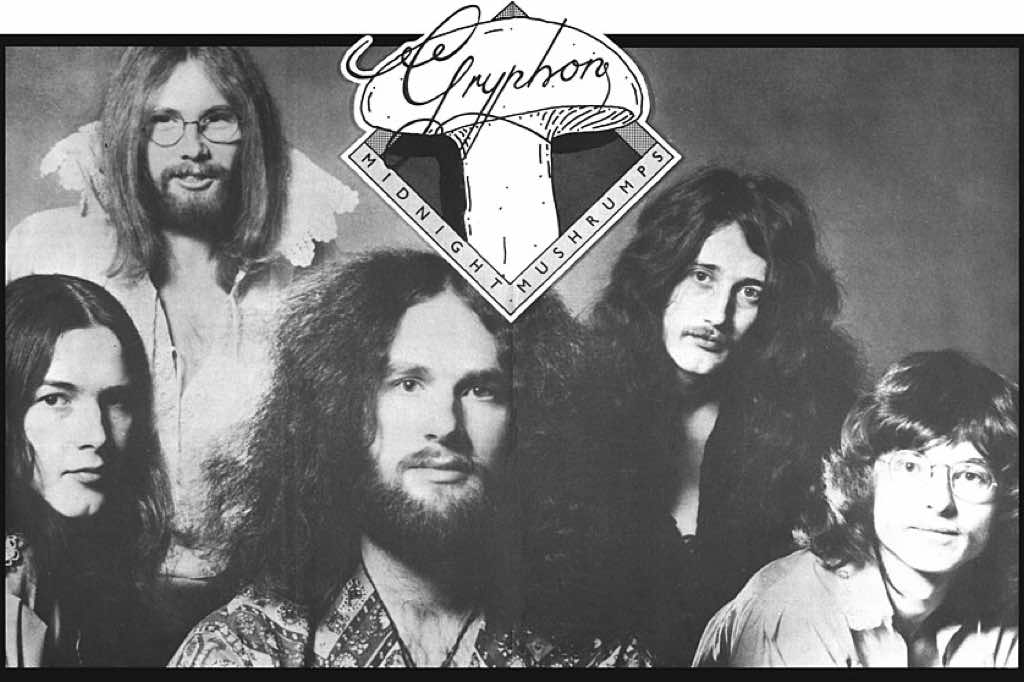 HR : So, you’re inspiring future audiences – Are they musicians too?
HR : So, you’re inspiring future audiences – Are they musicians too?
DO : I think a lot of them are.
I think Gryphons root fan base has always been musicians – without wanting to sound pretentious, Gryphons music IS musicians music. You have to have some understanding of music to appreciate what the hell we’re doing!
I think it would be fair to assume that most people who follow us play an instrument, but you never really know …
Over the years we’ve all agreed that we felt our music reached people who liked all sorts of music – we’re pretty eclectic ourselves – there are a lot of influences , right the way from rock through baroque, medieval, renaissance, blues, jazz, classical – everything you can think of in one huge melting pot.
HR : In the very beginning, what prompted you to combine traditional folk music with medieval?
DO : It started off – Richard Harvey and Brian Gulland met each other at the Royal College of Music.
Brian was studying choral and Richard was studying early music. They both played in a classical music ensemble called ‘Musica Reservata’.
Gryphon came together properly once Graeme Taylor, the guitarist , joined ; who’s influences were people like John Renbourn and that style of guitar playing ; then rather unusually they approached me to join them – bear in mind at the time I was playing in a heavy rock band. So bringing a heavy rock drummer into something like that was a little strange … but it worked! The one thing that was missing, I think, was a solid rhythm. I had to adapt what I was doing to fit in – it was quite difficult for me to go from playing rock to playing 5/4, or 7/4!
We started playing in folk clubs, really because they were the most open minded to what we were doing and took us seriously , with our folk influence. Further than that we didn’t know what was going to happen.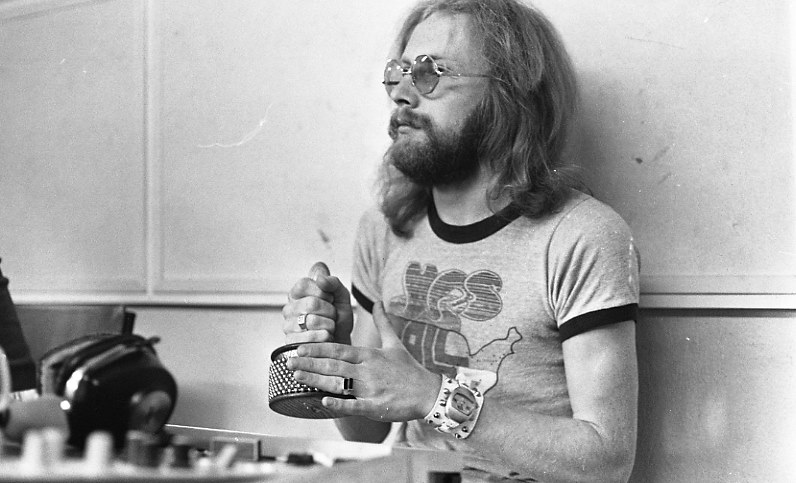 HR : Quite – You were pioneers of the sound at that time …
HR : Quite – You were pioneers of the sound at that time …
DO : Well there were bands around like Jethro Tull, Amazing Blondell, which were in a similar vein and leant towards folk with a medieval tinge, but we were certainly the first band to step into that area and bring in front of the general public.
HR : I can’t imagine that Crumhorns and Bassoons had ever been used in rock music before …
DO : NO and probably never will be again! [laughs]
I think the actual sound of Gryphon is what attracted people because nobody had heard instruments like that – not quite true with the people who were interested in medieval music – they would have know what a Crumhorn was, but the average person in the street wouldn’t have had a clue!
I suppose it was a period of education for people who weren’t sure what was going on.
Once the band got going I remember we did a concert at the Victoria & Albert museum in London, which was more like a lecture where we explained what the instruments were, and where they came from – from there the whole thing just expanded ; suddenly medieval instruments became interesting, and people associated the sound with what we were doing, and it was a very different sound – it still is.
We were out playing recently and I was amazed by how many people come up who are fascinated by the vast array of instruments that we have on stage. Between the 6 of us in the new line-up we’re playing between 50 and 60 instruments. It’s a hugely diverse sound.
HR : The expanse of festival stage is really ideal then, when you have what is essentially a mini orchestra!
Gryphon had had quite a hiatus before you reformed to play live – what inspired the reunion?
DO : When the band split up in 1977 we really just disappeared without trace as many bands did under the onslaught of Punk.
The idea of doing a farewell/reunion gig had been on the cards for quite a few years but it had never been talked about seriously. Finally he were all together one evening and it was decided that we should go ahead and just do it.
It was 2009, and at that time we had nearly 200,000 hits on our website, so we thought that there was definitely something going on and that the support for the band was still very evident.
We decided on a London venue – Queen Elizabeth Hall on the south bank – and we managed to fill the place without any advertising. Then it all fell flat again because the various members of the band had other commitments, but our presence started to grow through social media from there, and in 2014 we decided to put our toes in the water again.
In 2015, we did 6 shows all of which were brilliantly well attended, and in 2016 we were invited by Fairport to go and open Cropredy too – which was just perfect.
HR : It’s remarkable really, especially as you didn’t have any new music to promote at the time …
DO : No. We were not in a position at that time to have a new album ready, so we decided that we would just go out and play material from the first 4 albums plus a couple of new dances.
HR : You’ve got quite a spectrum of musical styles to perform, but from a recording perspective, why did you move from acoustic to electric on the early albums?
DO : After “Midnight Mushrumps” when we got to “Red Queen”, we’d be taken on by Worldwide Artists – which was run by Brian Lane , who at the time was managing YES, Rick Wakeman and couple of others.
Rick was a friend of Richard and Brian’s from the RCM, and he introduced us to Brian Lane.
Within a few weeks of being signed up, we were on our way to America to support YES.
During that time, we’d all been great fans of the prog scene, and the Canterbury scene – Caravan, King Crimson etc –
and whilst we weren’t pressured in any way, “Red Queen” was really our first step into prog ; using a lot more electronic instruments, and taking a bit of a step back from the medieval side of things – Brian was still playing his bassoon and we still used Krum Horns and recorders, but it wasn’t to such a great extent. Richard now had a great Rick Wakemanesque bank of keyboards surrounding him for a start, and we moved into a different phase …
“Red Queen” was the album that we toured the states with.
HR : I can’t imagine the magnitude of touring with YES – they were huge!
DO : It was amazing!
The response in America was great because we were so quintessentially English , playing all these really weird instruments, and so we went down a storm.
We played at places like the Houston Astrodome, and Madison Square Gardens in New York.
Definitely the highlights of my musical career would centre around those dates.
We came back to the UK and did another leg with them here – probably 150 dates in all.
It got to the point where we knew their music as well as they did, and for the last few dates of the American tour in the mid 1970s we would go onstage and join them for their encores, which was quite an experience.
HR : Given that exposure, and the fact that you’d already changed your sound for “Red Queen”, was it a conscious decision to move back to a more traditional sound?
DO : Sort of, yes. The album after “Red Queen”, was “Raindance” – there were still hangovers from “Red Queen”, but there were a lot more, I suppose commercial sounding shorter tracks – we’d been into doing 10 – 15 minute tracks, and suddenly we were producing 2 and 3 minute songs.
The thing about ‘Gryphon’, I believe, is that if I was to play all 5 albums to someone who didn’t know ‘Gryphon’, they would think they were listening to 5 completely different bands.
There’s nothing that really specifically links the albums, apart from certain sounds, but in terms of composition and arrangement they are 5 VERY different albums.
If you listen to the 1st and the 5th, there is no comparison – you’d be very hard pushed to say “Yes that’s the same band!”
HR : Does that mean that you’ve never labelled yourselves?
DO : We got labelled by other people ….
I worked for Melody Maker and for Sounds, so I knew why it happened , journalistically – back then, things had to be pigeon-holed because if you didn’t fit in a pigeon-hole you didn’t fit, full stop.
These days music is so diverse that you can’t put a band into a pigeon-hole, a band is what it is, but back then we were classed as “medieval folk rock”.
Actually Chris Welch tagged us “13th Century Slade”!
HR : [laughs] that’s brilliant, but I probably shouldn’t laugh …
DO : No, it took a long time to shake off!
It was very funny, and a great thing for our PR guys, but we weren’t Slade.
Having said that though, in the popularity stakes – our average audience did, and still does, range from Hells Angels to Nuns, and so far as I know we are the only band who have ever managed to get onto BBC Radio 1, 2, 3 and 4 in the same week – which gives you an idea of the breadth of our audience, and even BBC 6 Music recently played the whole of “Midnight Mushrumps”.
HR : You have quite a few unique achievements to your name ..
.
DO : We have?
HR : Weren’t you the only band ever to play at the Old Vic?
DO : Ah, yes! The reason for that was – we were approached by Sir Peter Hall , who was running the National Theatre at the time and he asked us if we’d write the music for the Royal Shakespeare Companies production of “The Tempest” ; which is where a lot of the music from “Midnight Mushrumps” came from. It was originally written for the RSC, but was adapted and is how “Midnight Mushrumps” came into existence.
That was a huge honour, and a one off.
‘Gryphon’ are a bit of a one off really, aren’t we?
I don’t think there are any comparisons – I seriously can’t think of anything that gets even close to what we are and what we’re doing. There have been a few copy cat bands along the way, and a few bands who have gone along similar lines but I still think Gryphon is unique, and all 5 of the albums are unique in their own way – but what it really comes down to, more than anything else is the standard of musicianship and composition – and now we’ve got Graham Preskett in the band too, who has played with everyone under the sun, and getting him onboard was a major achievement.
He was Gerry Rafferty’s keyboard player and arranged all the big hits like Baker Street and Night Owl, and things like that. He knew Richard at college too, so there’s some old school stuff going on there, and he’s been invaluable in terms of helping to recreate the sound.
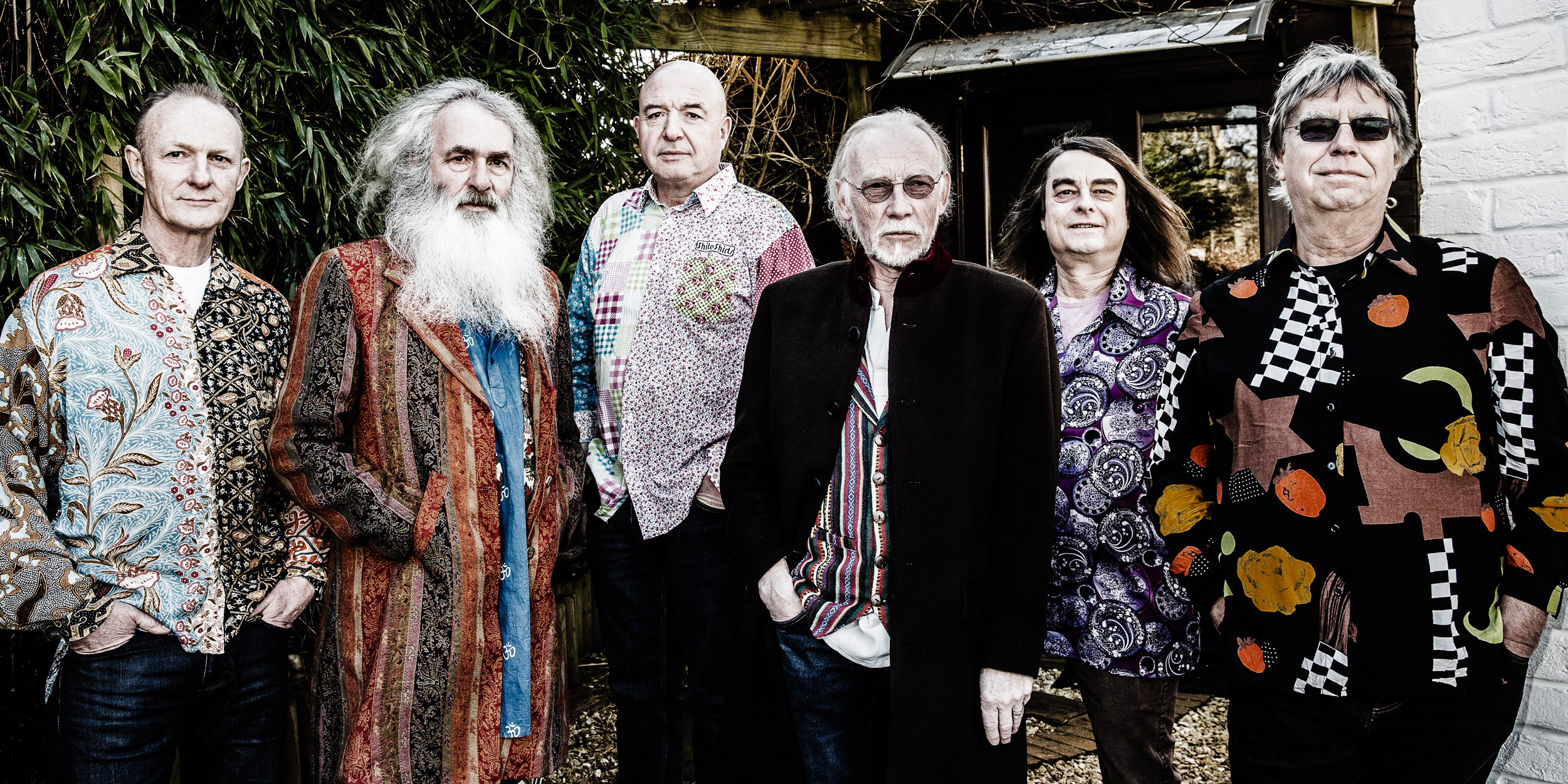 HR : That kind of chemistry is very important
HR : That kind of chemistry is very important
DO : Oh completely. You have to have the right people in a band like ‘Gryphon’ or it wouldn’t work.
And it does work.
People are still playing the music, people are still interested, and really Helen, what proves it to us is the amount of people who came out to see us last year.
I’m immensely proud of the band and the guys that I work with.
Richard in particular, who’s gone onto write film music and work with Hans Zimmer, and worked in Hollywood with a lot of people – he’s an incredibly talented musician.
It’s very strange, how a bunch of naughty school boys as we were back then, have all ended up being in prominent places in the music, and film industry.
HR : Is it not the naughty schoolboy edge that keeps it fresh for everybody?
DO : Absolutely!
The other thing about ‘Gryphon’ is that it was all very irreverent and a big joke as we were concerned, certainly at 18 and 19 years old – but what is great is that feeling has carried on even after 38 years of not playing together.
When we get back on stage we slip straight back into the flinging insults at each other, and it keeps the audience involved.
HR : 38 years was quite a break though …
DO : [laughs] yes – yes, and mainly because everyone had gone off doing other things, there was no other reason for it – it just wasn’t until 2 or 3 years ago that we could take up the gauntlet again.
Richard had been out on the road with John Williams, the guitarist, who decided to retire from touring – and that was the first time that he was available, and with him being the front man, we could NOT do ‘Gryphon’ without him.
He wanted to carry on playing live, because writing film music is actually quite a lonely existence, and the only time you ever get to hear what you’ve written is when the orchestra is playing it, and its being recorded, and then it’s gone.
I think in every musician, whatever they do, there is a desire and a need to play live.
It’s completely different to being in the studio where you can overdub, and re-record and correct mistakes – out there live, you’re exposed and what you produce that night is what you produce and that’s it – from that perspective for any musician, playing live is incredibly important.
It comes and it goes. You create in that moment.
If you’re lucky, when you try to record or film a live album, you’ll capture the essence of what you’re trying to create, but it’s tough, and can go really wrong!
We played at the Union Chapel in 2015, and we filmed the 3rd movement of “Midnight Mushrumps”, which really gave people who can’t come and see us, a taste of what they’re missing!
HR : Talking of studio albums – It’s been 41 years Dave …
DO : [laughs]
We’d been promising our fans for a long time, but because of various things going on for various members of the band, it’s just been impossible.
I’m sure people think “but you’re musicians, you can write an album in a week and get it recorded” but with ‘Gryphons’ music we probably write about 3 minutes in a week!
HR : But it is here … FINALLY! Are you happy with it?
DO : Yes we are. We all think that it works very well. New material but with the feel of the old Gryphon. We have indeed ReInvented ourselves. A difficult thing to do after 41 years.
Our fans have responded really well to it and we appear to be getting some good airplay and reviews.
HR : Was the material written over that vast break, or is it all pretty recent?
Most of the material is recent apart from “Ashes” which should have been included on the “Raindance” album but was rejected by the record company much to our annoyance. We have given it a makeover and are very pleased with the result. The longest Track “Haddock’s Eyes” was written by Graeme and is based on the ‘White Knight’s Tale’ from Alice Through The Looking Glass. We have tried to re-connect with our ‘Alice’ roots and John Hurford who did the cover artwork and design was really helpful with this.
HR : Did you feel that it was important to stay true to ‘Gryphons’ original sound?
DO : I think that any band who forget their roots and where they came from are in danger of losing their way. We did for a while after “Red Queen” so when a new album was finally discussed we felt it important to ourselves and our fans, to remain true to that original direction. You can hear it very strongly on “ReInvention”. It’s everything you would expect from a Gryphon album, Folk, Prog, Jazz, a strong medieval flavour, classical overtones and downright straight Rock.
HR : I have to say that I think it’s worth the wait, so Congratulations!
And in the personal life of Dave – are you working on any new projects outside of Gryphon at the moment?
DO : No – Gryphon is taking up all my time at the moment.
HR : You haven’t been completely off the musical radar over the years though have you – can we mention your involvement with ‘Gandalf’s Fist’? They seem to be very popular …
DO : Aaaaagh! ‘Gandalf’s Fist’. Yes! I recorded vocal sessions for their “Clockwork Fable” album.
Dean Marsh is a very talented young man, and I have great hopes for them – Even more so after Classic Rock Magazine voted them number 3 in their top 100 albums.
That’s really quite an achievement, and I’m chuffed and quite proud to be involved with them.
It was the first thing I’d been happy to put my name to in the past 10 years.
HR : Well, between them and Gryphon, you’re doing a sterling job at helping to keep the British prog scene alive so – thanks Dave!
DO : You’re very welcome.
It’s nice to know that people are still following what we’re up to, after having taken such a long break.
When you come back after that length of time, you’re never quite sure what’s going to happen. We could have leaped out there and ended up playing to 3 people, but we didn’t, and it’s nice to know that the music is still appreciated …
HR : It’s called standing the test of time …
DO : Which is more than we have! [laughs]
Helen Robinson
[zombify_post]

